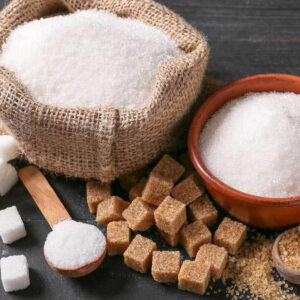Discover the Uses and Perks of Beet Sugar Vs Cane Sugar in Your Daily Diet
Checking out the distinct top qualities of beet and cane sugar discloses even more than just their sweetening abilities; it highlights their special influence on health and wellness and cookeries. Beet sugar, recognized for its refined flavor, is commonly preferred in delicate treats, whereas cane sugar, with its hint of molasses, adds splendor to durable recipes. Each type holds its own dietary profile and glycemic implications, welcoming a much deeper understanding of their duties in a well balanced diet regimen and sustainable intake methods.
Beginning and Production Procedures of Beet and Cane Sugar

The distinctive environments and dirt kinds required for growing sugar beetroots and sugarcane contribute to differences in their growing techniques and geographical distribution, influencing the economics and sustainability of their production. beet sugar vs cane sugar.
Nutritional Contrast Between Beet Sugar and Cane Sugar
In spite of stemming from various plants, beet sugar and cane sugar are nutritionally very comparable, both mainly including sucrose. Each offers about 4 calories per gram, translating to approximately 16 calories per teaspoon. Structurally, both sugars are composed of approximately 99.95% sucrose, with marginal quantities of other substances like moisture and trace minerals, which do not significantly modify their nutritional profiles.

Inevitably, when choosing between beet sugar and cane sugar based upon dietary content alone, both offer similar advantages and downsides as they are basically kinds of the exact same particle-- sucrose, giving fast power without various other nutrients.
Effect On Health: Glycemic Index and Caloric Material
Checking out even more into the results of beet sugar and cane sugar on wellness, it is essential to consider their glycemic index and calorie web content. The glycemic index (GI) of both beet and cane sugar is around 65, classifying them as high-GI foods, which can create quick spikes in blood sugar degrees.
Each kind of sugar contains about 4 calories per gram, making their calorie content matching. For those checking this hyperlink calorie consumption, particularly when taking care of weight or metabolic health problems, comprehending this equivalence is vital (beet sugar vs cane sugar). Too much usage of any type of high-calorie, high-GI food can add to wellness concerns such as weight problems, heart illness, and insulin resistance.
Environmental and Economic Factors To Consider of Sugar Production
Beyond wellness impacts, the production of beet and cane sugar likewise increases substantial ecological and financial problems. Sugar beet farming tends to require cooler climates and has a lower geographical footprint compared to sugar cane, which thrives in tropical areas.
Additionally, using chemicals and plant foods in both beet and cane sugar farming can lead to soil degradation and air pollution, further impacting biodiversity and neighborhood water bodies (beet sugar vs cane sugar). The option in between cultivating sugar beet or cane often depends upon local environmental problems and look at more info financial aspects, making the sustainability of sugar production a complicated concern
Culinary Applications and Taste Differences
While the ecological and financial facets of sugar manufacturing are indeed considerable, the choice in between beet and cane sugar also affects culinary applications and flavor accounts. Beet sugar, obtained from the sugar beet plant, this post is recognized for its incredibly neutral preference.
Cane sugar, drawn out from sugarcane, commonly preserves molasses traces, which impart a distinctive splendor and depth. This minor molasses taste improves the complexity of baked products, sauces, and marinades. It is specifically favored in products where a sugar touch is preferred, such as in brownies or gingerbread. The mild variant in dampness web content in between beet and cane sugar can impact the appearance and consistency of dishes, making cane sugar a preferred selection for details recipes that benefit from its distinct residential or commercial properties.

Verdict
To conclude, both beet and cane sugar have unique origins and production processes, offering similar nutritional accounts with mild distinctions in sodium content and flavor. While their effect on health and wellness, especially regarding glycemic index and calories, is equivalent, the selection between them frequently comes down to environmental, financial factors, and specific cooking requirements. Understanding these aspects can lead customers in making informed decisions that align with their wellness goals and taste preferences.
Comments on “Many people compare beet sugar vs cane sugar to understand their distinctions in sweetness and consistency.”